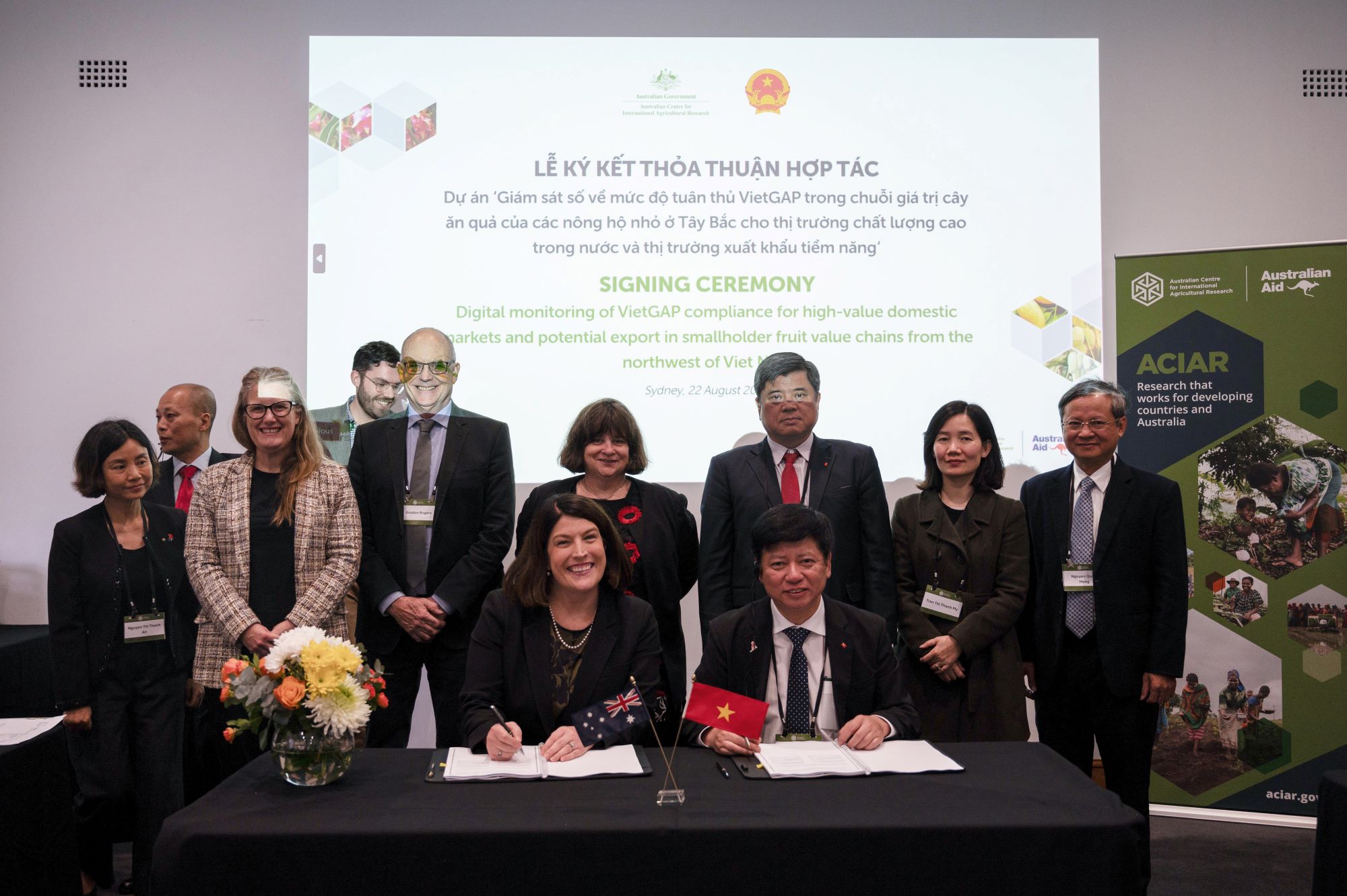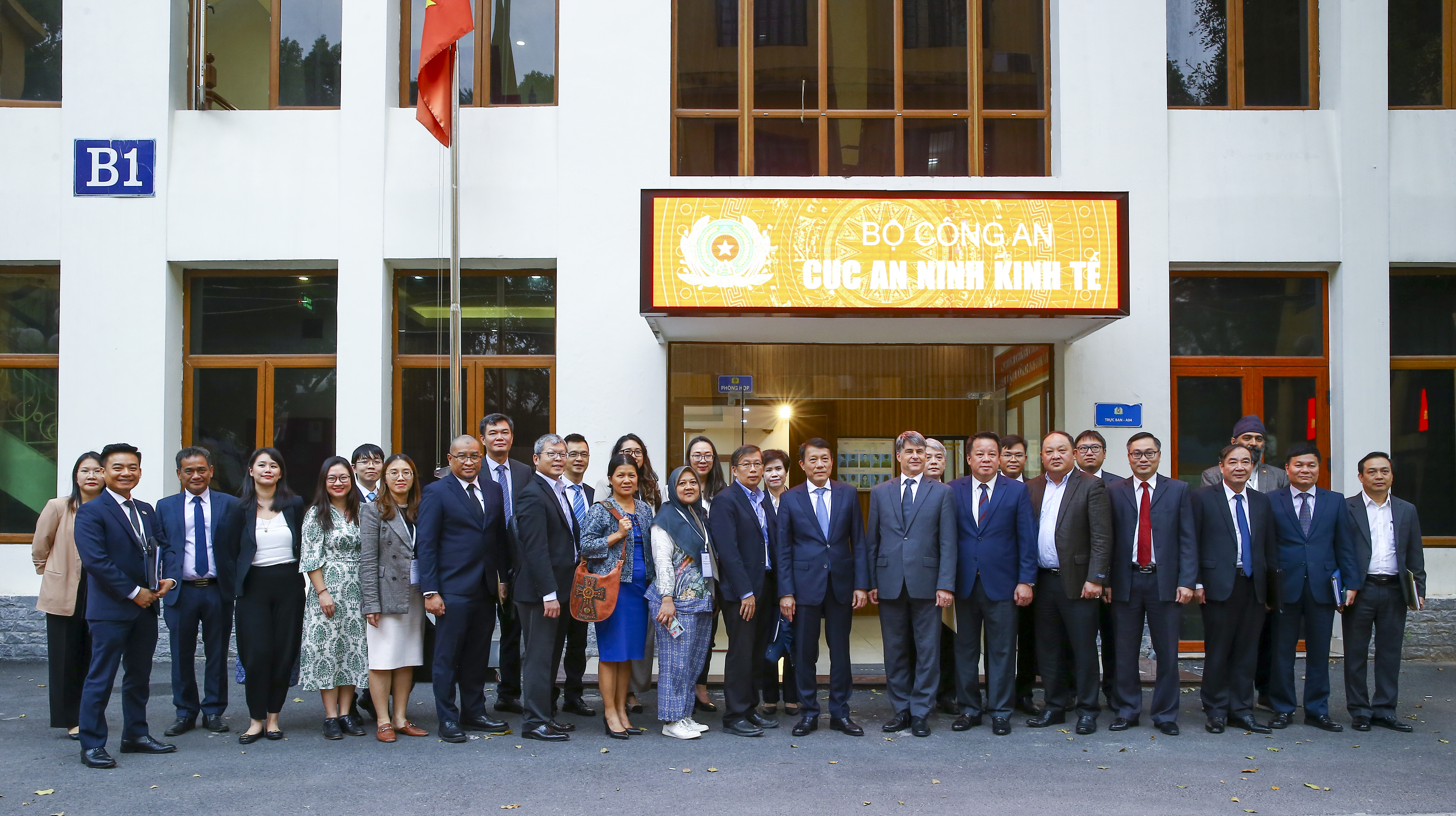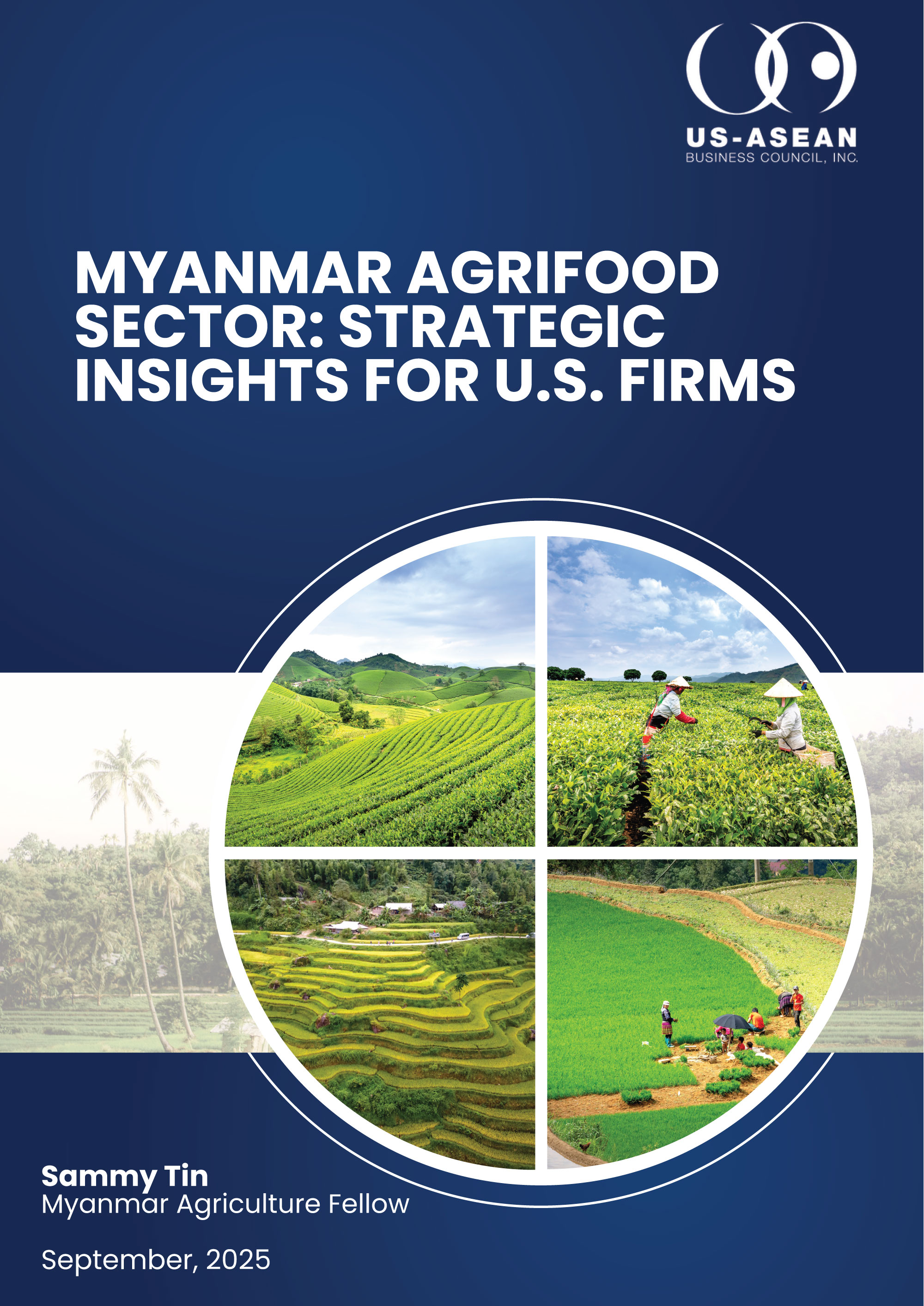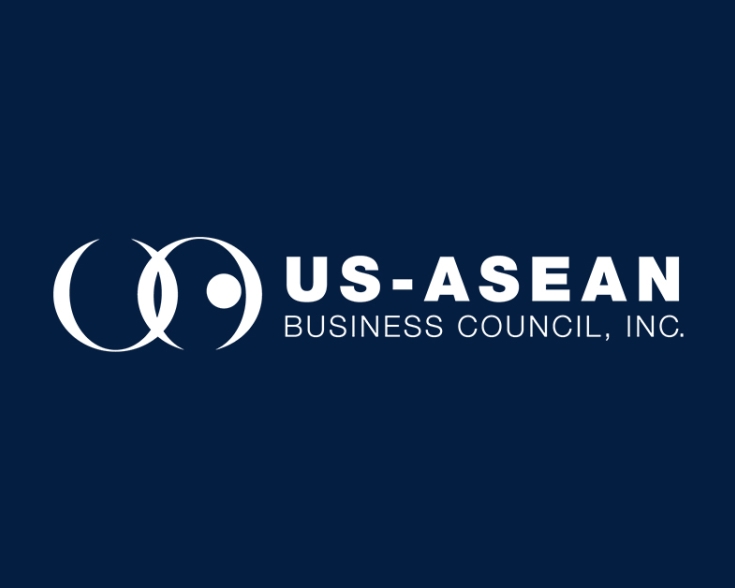Vietnam’s Green and Digital Agricultural Transformation

The Government of Vietnam is promoting the development of its agricultural sector through international partnerships and the adaptation of sustainable farming practices. On August 22 in Sydney, the Australia Centre for International Agricultural Research (ACIAR) and Vietnam’s Ministry of Agriculture and Environment (MAE) signed a new four-year project to promote digital agriculture and climate-smart growth. The project, worth 2.1 million AUD, focuses on digital monitoring of Vietnamese Good Agricultural Practices (VietGAP) in smallholder fruit value chains from the northwest of Vietnam. This project includes researchers from Vietnam’s Fruit and Vegetable Research Institute (FAVRI), the Northern Mountainous Agriculture and Forestry Science Institute (NOMAFSI), and Vietnam University of Agriculture (VNUA). It aims to help farmers access high-quality markets and boost Vietnamese fruits in global value chains. MAE Vice Minister Tran Thanh Nam emphasized the partnership's role in supporting Vietnam’s green growth, digitalization, and innovation in agriculture.
The MAE is also implementing a long-term, low-emission crop production plan for 2025–2035 to promote agricultural sustainability. The plan aims to reduce greenhouse gases by 10% and methane emissions by 30% from 2020 levels. It includes developing at least 15 low-emission areas and five technical packages for crops, such as rice, sugarcane, coffee, cassava, and bananas. For rice, the largest emitter, strategies include crop diversification, rice-shrimp rotation, alternative wetting and drying, and straw recycling. Technologies such as composting, mushroom cultivation, and biochar production are used to improve soil quality and increase income while reducing methane emissions. MAE Vice Minister Hoang Trung emphasized that this plan aligns with Vietnam’s nationally determined contributions (NDCs) and aims to make farming more sustainable. MAE expects the program to develop a low-emission agricultural ecosystem through government policies, business investment in technology, farmer-led transition, and international support. These reforms create new opportunities for U.S. companies to collaborate with Vietnam including digital agriculture tools, low-carbon technologies, and supporting Vietnam’s agricultural transition.








